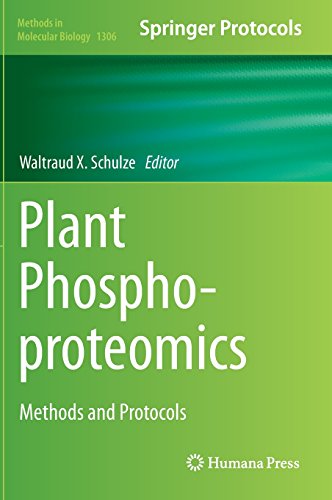

Most ebook files are in PDF format, so you can easily read them using various software such as Foxit Reader or directly on the Google Chrome browser.
Some ebook files are released by publishers in other formats such as .awz, .mobi, .epub, .fb2, etc. You may need to install specific software to read these formats on mobile/PC, such as Calibre.
Please read the tutorial at this link: https://ebookbell.com/faq
We offer FREE conversion to the popular formats you request; however, this may take some time. Therefore, right after payment, please email us, and we will try to provide the service as quickly as possible.
For some exceptional file formats or broken links (if any), please refrain from opening any disputes. Instead, email us first, and we will try to assist within a maximum of 6 hours.
EbookBell Team

0.0
0 reviewsThis detailed volume addresses recent developments in phosphoproteomic techniques with a particular focus on the plant system. Over the recent decades, proteomic methods were refined to study the significance and dynamics of protein phosphorylation in various biological contexts. However, working with plant tissue imposes particular challenges to the biologist which are attributed to the rigid cell wall making protein extraction more difficult, the skewed protein abundance with Rubisco as a highly abundant protein and a large central vacuole leading to low protein yield and increased degradative enzyme activity. The methodologies in this book seek to move beyond these issues. Written for the Methods in Molecular Biology series, chapters include introductions to their respective topics, lists of the necessary materials and reagents, step-by-step, readily reproducible laboratory protocols and tips on troubleshooting and avoiding known pitfalls.
Practical and authoritative, Plant Phosphoproteomics: Methods and Protocols serves as an ideal reference for researchers investigating this vital area of plant science.